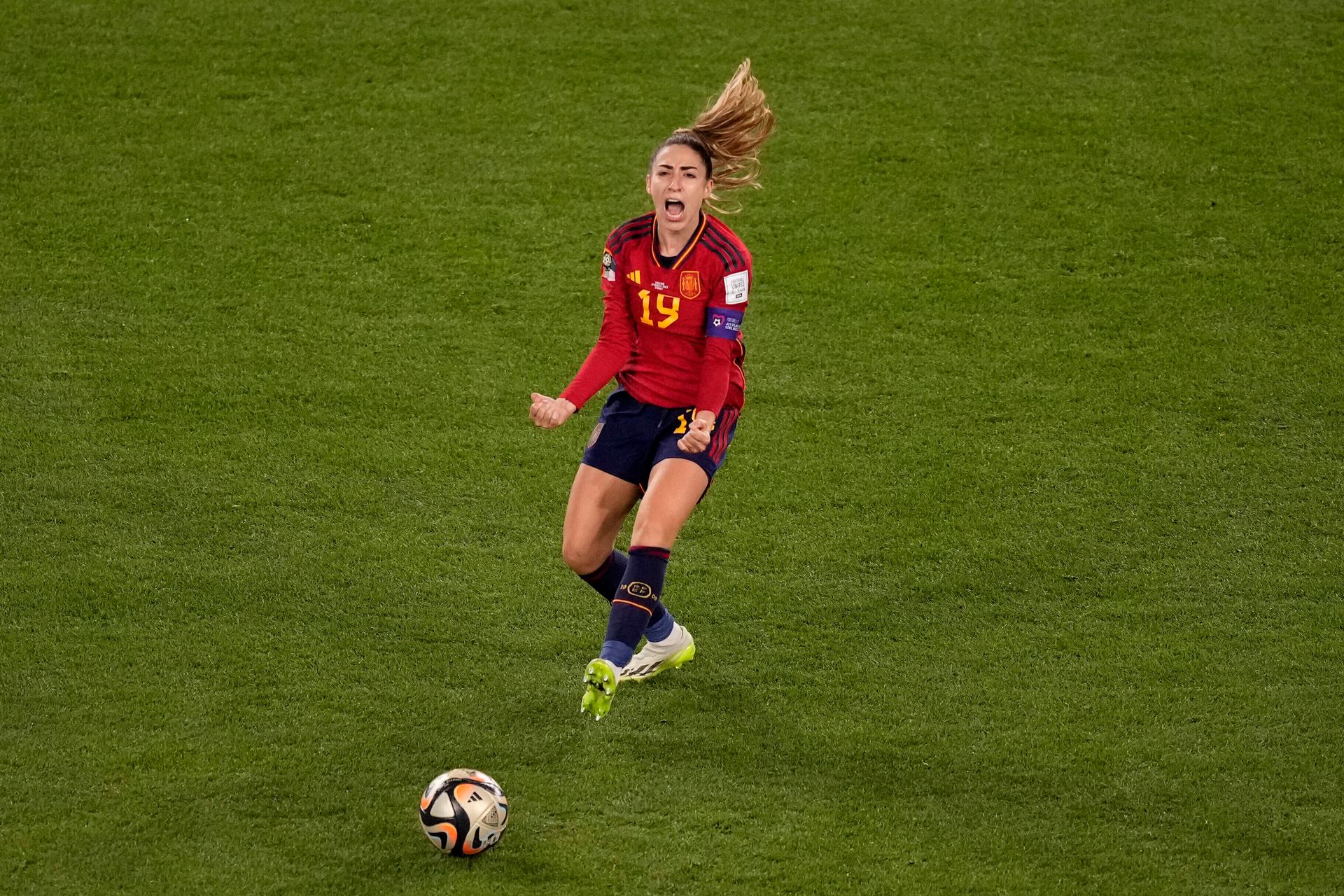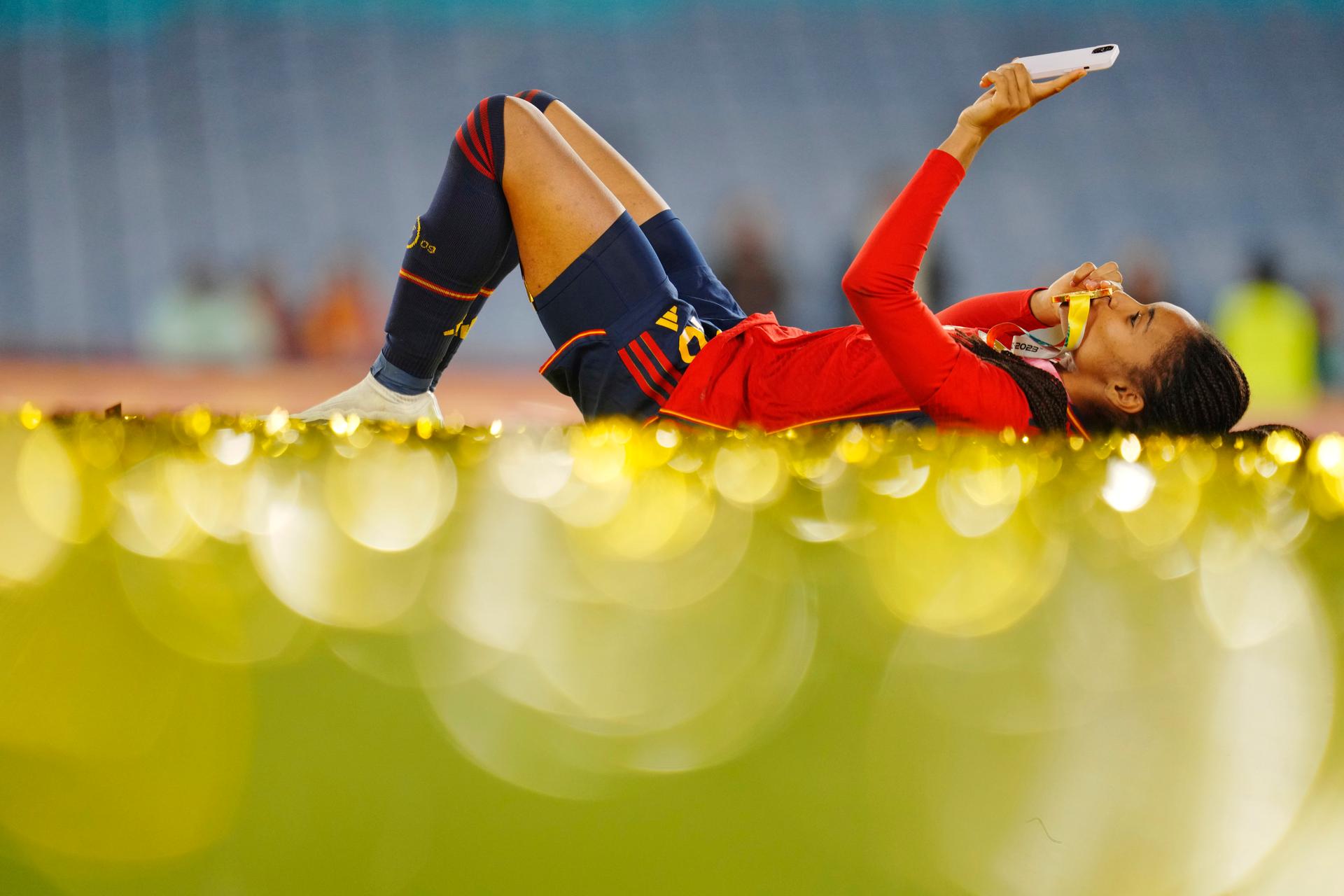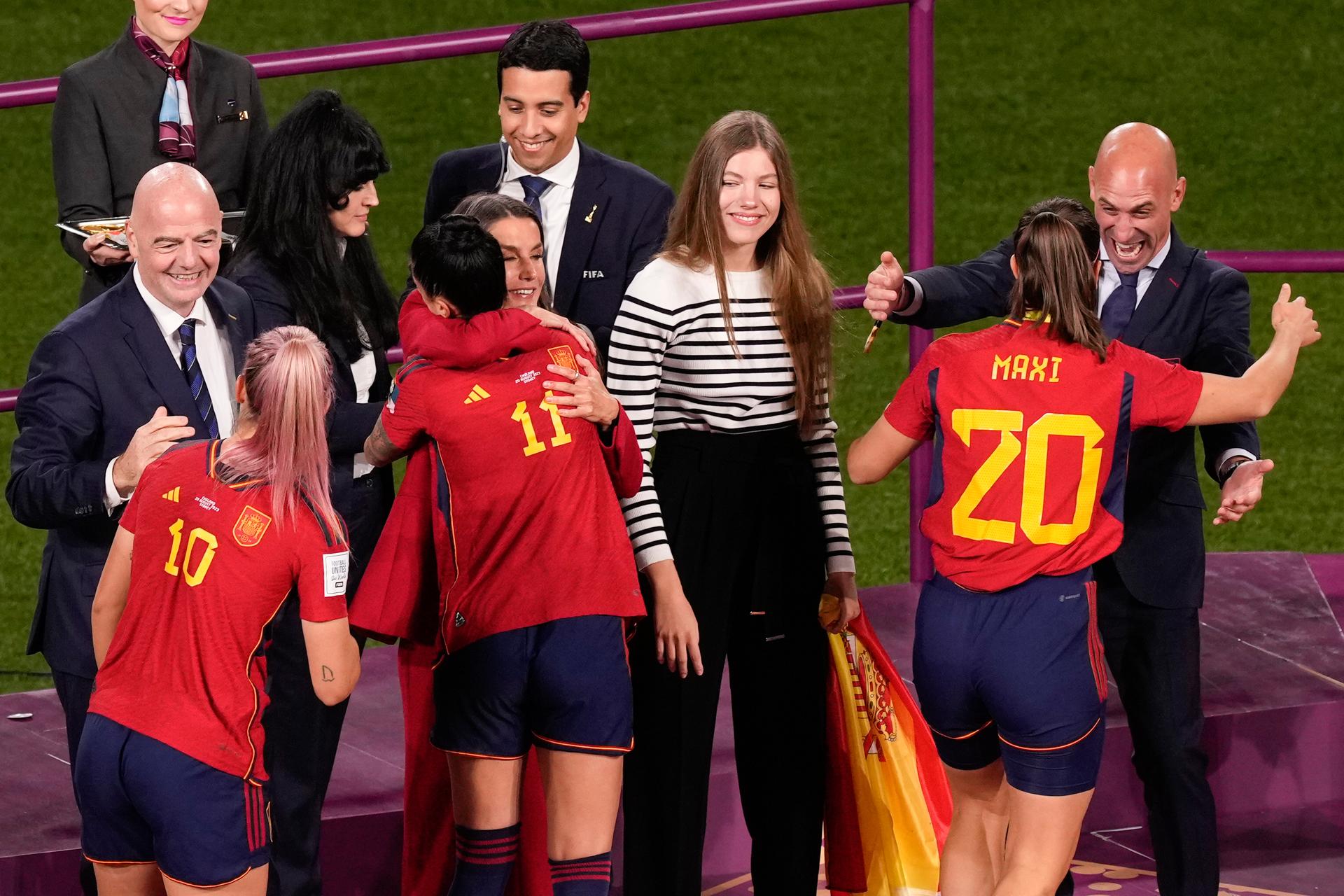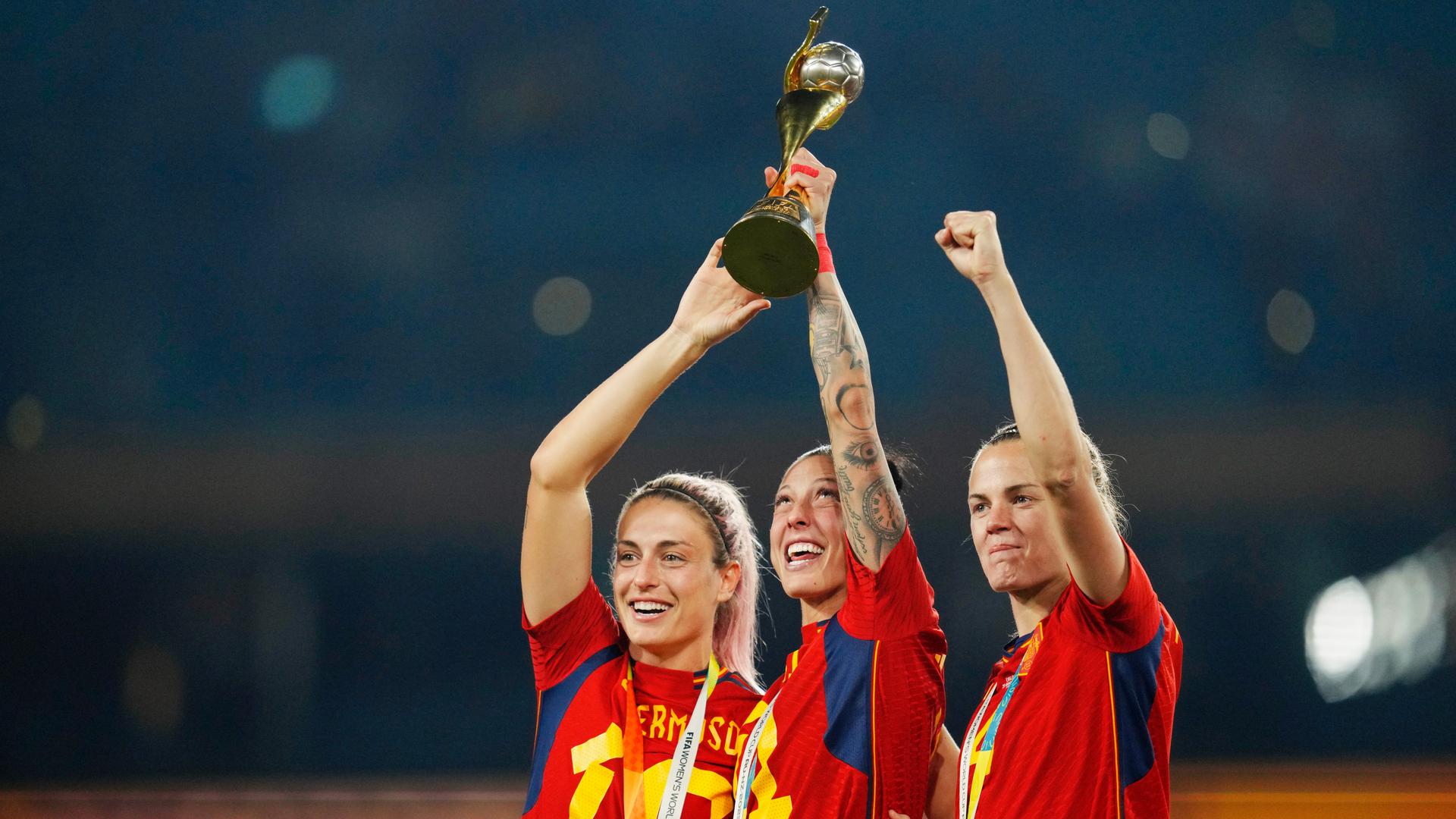Spain has won the Women’s World Cup for the first time, outplaying a tough England team on Sunday in Sydney, Australia.
The winning goal was a left-footed bull’s eye into the corner of the net by Spanish captain Olga Carmona.
This win is for the whole country, Carmona said to the press after the match.
“To all the fans in the streets, we did it, but it was a very hard struggle,” she said.
That struggle was on and off the field. Last September, 15 of Spain’s top players quit the national team. That’s more than half the squad. They said that their head coach, Jorge Vilda, was too authoritarian and controlling and that his behavior was affecting their mental health.
In a press conference at the time, player Irene Paredes said that for people to return to the team, Spain’s soccer federation needed to address their concerns. But the federation, led by Luis Rubiales, backed Vilda.

So, Spain came to this cup with a bench full of young players untested on the world stage. That inexperience nearly cost them the cup. Japan pounded them 4-0 in an early round. But those same young players rallied to keep Spain’s hopes alive.
Nineteen-year-old Barça star Salma Paralluelo scored one of her two World Cup goals, one that would help eliminate Sweden. Paralluelo also took home the cup’s best young player award.
When Sunday’s final whistle blew, the players rushed the pitch, piling on top of each other, dancing and crying. Noticeably not included was Vilda, who at first stuck to hugging other male staff members. It was a subtle sign of the lingering tensions on the team.
In the not-so-subtle category: As Spanish soccer chief Luis Rubiales handed out the victory medals, offering each player a traditional kiss on the cheek, he grabbed star forward Jennifer Hermoso. And, to her surprise, and in front of a global audience, he planted one on her lips.

In locker room celebrations afterward, Hermoso said she did not like that. On social media, fans called for Rubiales’ resignation. Some said it was a sign of Spain’s chauvinist attitude toward women athletes.
Later, Rubiales apologized — even as Hermoso herself excused the kiss as a natural and spontaneous gesture of joy. But in the larger scheme of things, the team’s victory is sure to inspire women in their fight for equality with men. And, just to play the game.
Already, more and more young Spanish girls are suiting up, including Spain’s 15-year-old Princess Sofia.

After the bittersweet win, Carmona, who scored the decisive goal, learned that her father had died. He’d been suffering from a long-term illness, and Carmona’s family chose to let her play without the grief. After, she wrote on X, formerly Twitter, “I had no idea my ‘guiding star’ had been by my side during the game, giving me strength. Rest in peace, Dad.”
On Monday night, Spain’s national team brings its World Cup trophy home. Awaiting them will be throngs of fans celebrating on the streets of Madrid.
Related: A traditional Iranian sport has been closed off to women. One activist wants to change that.
The World is an independent newsroom. We’re not funded by billionaires; instead, we rely on readers and listeners like you. As a listener, you’re a crucial part of our team and our global community. Your support is vital to running our nonprofit newsroom, and we can’t do this work without you. Will you support The World with a gift today? Donations made between now and Dec. 31 will be matched 1:1. Thanks for investing in our work!
